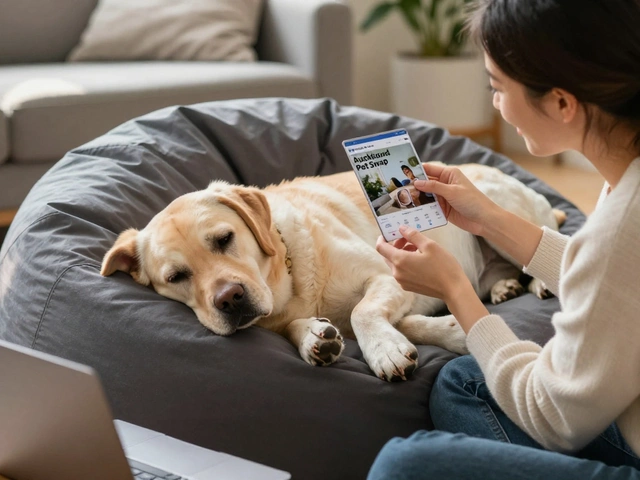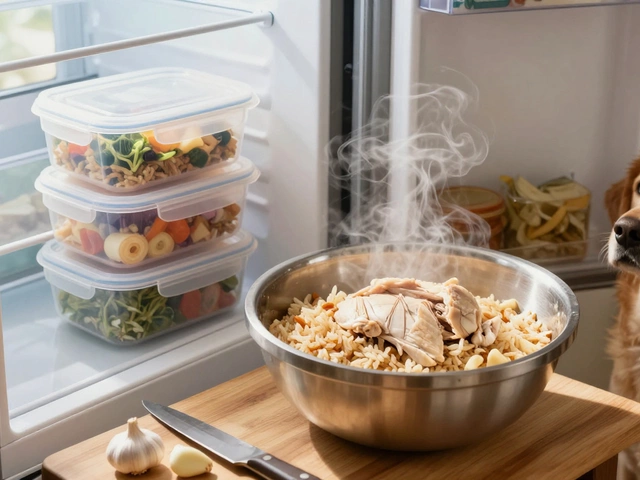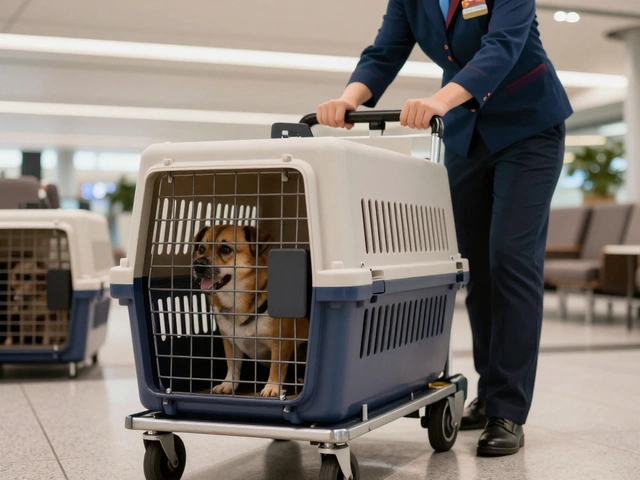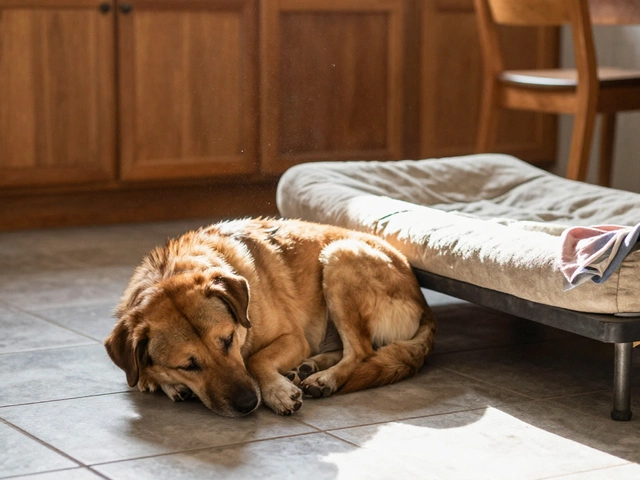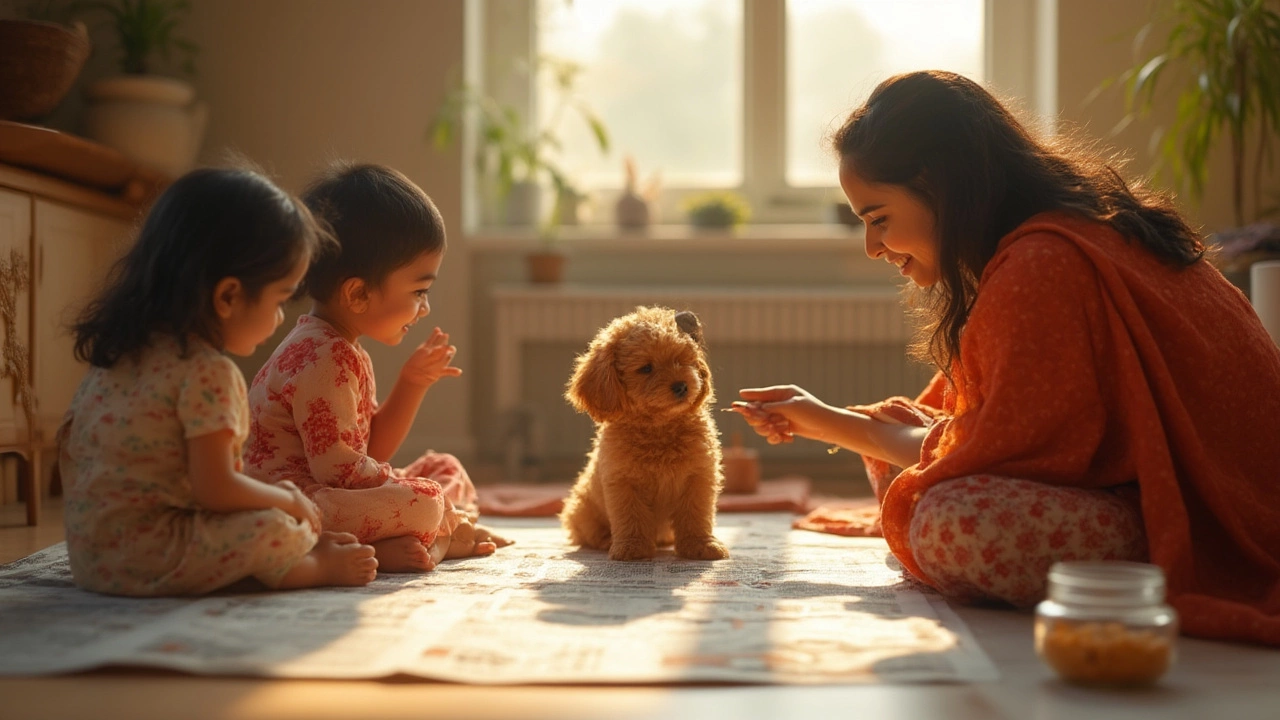
Ask ten different dog owners how long it took them to housebreak their pup, and you'll probably get ten different answers. Some might boast about their dog's quick mastery in just a week, while others are still crossing their fingers months down the track. It's a topic that has spawned heated debates at Auckland dog parks and in online forums around the world—and a lot of myths and tall tales, too. What’s even trickier: there’s no one-size-fits-all answer. Potty training is both art and science, shaped by everything from breed and age to your schedule at home.
How Long Should It Take to Housebreak a Dog?
Here’s the honest truth: most puppies catch on to housebreaking somewhere between three and six months. Adult rescues can be trickier, sometimes taking several months, especially if they’ve had a rocky past. But here’s where it gets interesting—one study done by the American Animal Hospital Association found that 75% of puppies got the hang of potty training within four months of consistent effort, while a determined 15% needed up to a year. Why such a big range? Genetics, routine, and even your personal patience play a bigger role than most dog blogs let on.
The first weeks are all about building a habit—at this stage, puppies don’t really have the muscle control to "hold it" for long. At two months old, most pups can only wait two to three hours before they need to go. As they get older, add about an hour to their "holding" power for every month they age. By five or six months, a pup can go for five to six hours, though holding it overnight is a milestone some don't hit till they're closer to a year old.
For adult dogs, success depends on their background. Dogs from loving homes tend to catch on faster than rescues who never saw the inside of a house till recently. In Auckland animal shelters, staff report that dogs with a clear prior history of house living adapt much quicker — sometimes in under three weeks. But the scatter-brained newbie who's never set foot indoors might need double that, or more.
A lot comes down to the human in the equation, too. If you stick to a schedule, keep your cues clear, and reward good efforts, you're setting your dog up for quicker wins. Flaky routines? Inconsistent expectations? That's where most potty training fails. The moment you slack on letting your dog out or forget to reward them for doing their business outside, you risk confusing the poor thing. They learn best when the rules never change.
Housebreak a dog during Auckland's rainy winters? You’ll need extra persistence. Surveys of Kiwi dog owners show that potty setbacks happen more often on stormy weeks, especially for smaller dogs. Nobody likes standing in the cold and wet, including your four-legged mate. Solutions? Some folks swear by sod pads (think: a literal box of grass inside the house), which can serve as a backup on rough days.
There's some science behind the timeline, too. Here’s a quick data table from a consumer survey of 500 dog owners in New Zealand (2024):
| Dog Age | Average Housebreaking Time (weeks) | Common Issues Reported |
|---|---|---|
| 8-12 weeks | 12-16 | Accidents, confusion |
| 3-6 months | 8-12 | Missed signals, overnight accidents |
| Adults (rehomed) | 6-14 | Stress, regression |
| Seniors | 10+ | Medical mishaps |
Keep in mind, though: these are averages. Even within a single household, two dogs can be worlds apart.
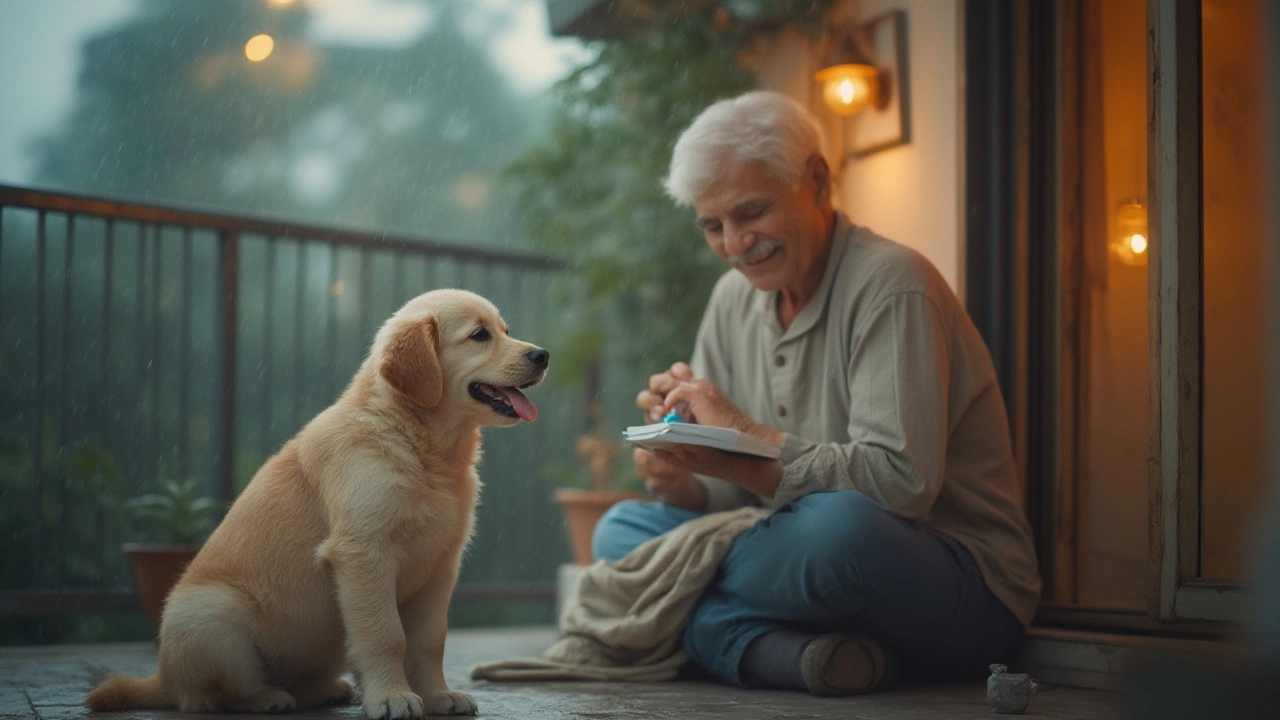
The Science Behind Potty Training: Factors That Matter
People like to say, "Dogs are creatures of habit," and nowhere is that truer than housebreaking. Age is the biggest factor—young pups just don’t have the physical or neurological chops to stay dry for long. Just like toddlers, their nervous systems need to mature before they can reliably control when and where they go.
Breed is another wild card. Smaller breeds (think Dachshunds or Chihuahuas) often take longer, not because they’re stubborn, but because their bladders are tiny and metabolism is ramped up. Big breeds might surprise you—they usually get the hang of things faster just because they're physically able to "hold it" for longer spells.
Gender matters less than you think, though un-neutered males can show more "marking" behavior, especially if there are other pets in the home. Spaying or neutering around six months of age, as recommended by vets across New Zealand, can help stem this, but doesn’t magically make a dog housebroken.
Schedules are key. Dogs thrive on predictability. Feed your dog at the same times daily, and you’ll find their toilet needs fall into a predictable pattern, too. Most dogs need to potty right after eating and after waking up, so build your routine around that. If you work from home, this is a breeze; if you’re away for long stretches, you might need backup—either a pet sitter or creative tools like doggy doors.
One often-overlooked factor is your home’s set-up. Apartments without swift outside access? That can slow the process. Busy, noisy houses might throw off shy or anxious dogs, making accidents more likely. If you live somewhere like central Auckland, elevators and city noise can delay breakthroughs even for the smartest pups.
Got a multi-dog household? Sometimes the newbie learns faster by copying the old-timer’s habits. But if you’re dealing with group chaos—multiple pups in training—it’s easy for mistakes to go unnoticed. Vets in Auckland often tell people to crate-train pups for clearer cues. Crates aren’t cruel when used right; they tap into a dog’s instinct to keep their sleeping area clean and make routines way smoother.
Here's a breakdown of key factors and their effects:
| Factor | Effect on Housebreaking Time |
|---|---|
| Age at start | Puppies take longer; adults with house history learn faster |
| Breed size | Small breeds often take 1-2 months longer |
| Routine | Structured routines speed up process |
| Consistency | Mixed messages create setbacks |
| Medical issues | Urinary infections, anxiety delay results |
Reward systems really work. Don’t just say "good dog"—offer an actual treat the instant they finish outside, not ten seconds later. Think of it like linking credit for good behavior to the act itself, exactly the way you’d want immediate feedback at work or school.
Accidents are normal, even with diligence. One misstep doesn’t undo months of progress. Dogs, just like people, have bad days—maybe they ate something unusual, maybe the weather is weird, or maybe you missed their signal.
Medical surprises come into play more often than people think. Persistent struggles? Might be more than just training. Bladder infections, digestive upsets, even anxiety can lead to setbacks. Vets recommend a check-up if accidents are too frequent, especially if you see any blood in urine or sudden changes in behavior.
Some Kiwi owners have started using tech to their advantage. There are a half-dozen smartphone apps now (try "PupSchedule" or "PottyPal") that send reminders, log accidents, and even offer rewards charts for families, making routines foolproof. Such tools hit mainstream in NZ pet stores in 2024, and according to a survey by Pet First NZ, half of new puppy parents in Auckland now use a digital tracker.

Making It Work: Tips, Troubleshooting, and Keeping Your Sanity
Success is less about tricks and more about tenacity. The gold standard for housebreaking is the "crate and timer" combo: keep your pup in a crate when you can’t supervise, take them out every 2-3 hours (for young puppies), and keep bathroom trips boring but rewarding—out, do the business, treat, then play. If there’s no action after five minutes, back to the crate for a bit, then try again. This method, recommended by both New Zealand SPCA and top behaviourists, produces the fastest results with the fewest setbacks.
Routine is your lifeline. Feed at precise times, track when your dog eats, drinks, wakes, sleeps and plays. Each activity should be closely followed by a trip outside on the leash, so you can see exactly when the deed is done. Reward immediately. The more you stick to this routine, the faster your dog connects dots between outside and toilet time.
Cleaning up after mistakes—do it with an enzyme cleaner, not standard cleaning products. If you use a cleaner with ammonia, you might actually make the spot smell like pee, tempting your dog to repeat the offence. Auckland pet stores stock plenty of enzyme sprays that break down scent markers, making future slip-ups less likely.
Want to speed things along for new puppies or rescue dogs? Here’s a quick starter checklist:
- Introduce a crate early and make it cozy, not punishment.
- Leash up for toilet trips, even if you have a backyard—this controls the habit.
- Track meals and water; restrict water in the late evening for puppies.
- Use the same exit door each time, so the cue is obvious.
- Praise and snack within two seconds of business done—don’t wait till you’re back indoors.
- Keep late-night outings calm—no playing, just business.
- Note their "potty dance": sniffing, circling, whining—act fast when you see it!
For dogs who get the basics but have the occasional accident, consider their stress level. Changes in your routine, new people, or home renovations can cause temporary setbacks. Have patience—don’t punish or scold after the fact, as dogs don’t associate delayed feedback with their past actions. Instead, quietly clean up and keep guidance consistent.
For those pesky little breeds who seem impossible to train, try pee pad training as a stepping stone, but phase it out as soon as possible, so your dog doesn’t think indoors is always fair game for a toilet.
It’s also smart to involve all family members in the process. Everyone in the house should use the same words and reward routine, or else you’ll confuse your dog and slow results. Sometimes, the biggest setback isn’t the dog—it’s people forgetting to stick to the plan.
Still banging your head against the wall after months? Take a step back and audit everything: consistency, patterns, accidents. Don’t be afraid to talk to your vet or a qualified trainer. Sometimes it’s just a missing puzzle piece that needs tweaking, like shifting feeding times or using a higher-value reward.
Housebreaking a dog can test your patience, but most owners find the breakthrough is worth every early-morning dash to the garden. Success stories from Auckland to Wellington all circle back to the same strategy: patience, persistence, and a pocket full of snacks.

